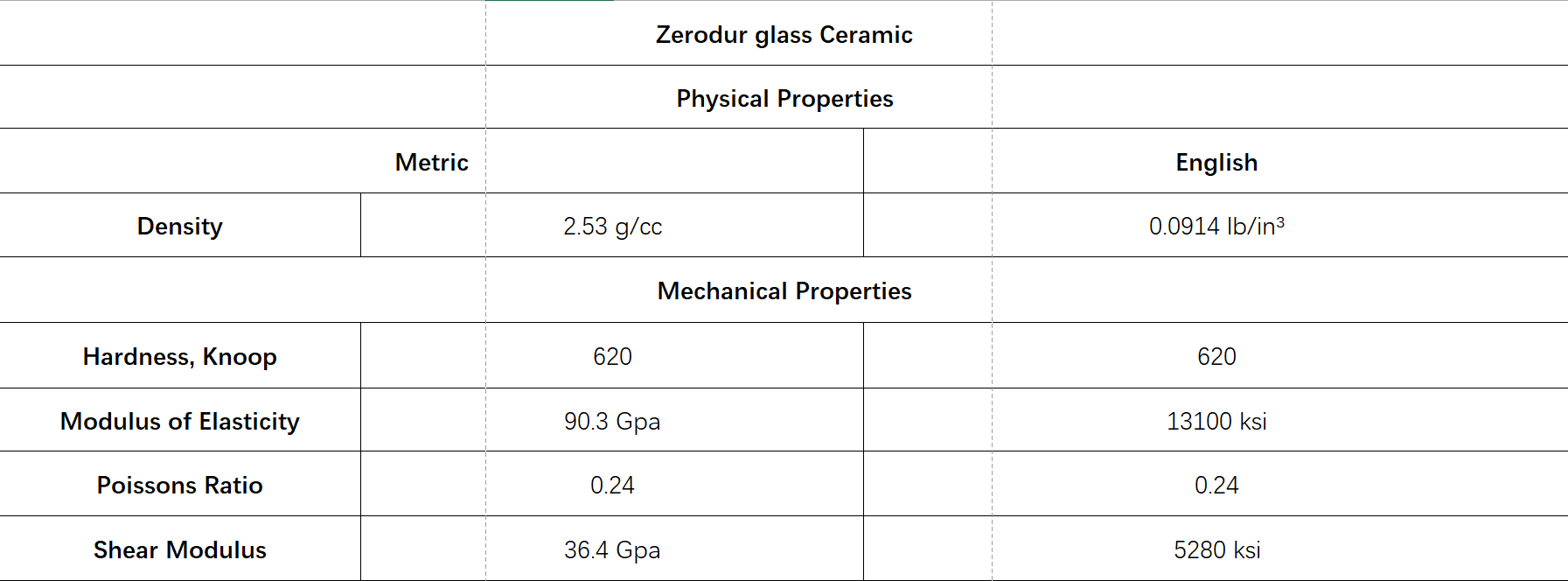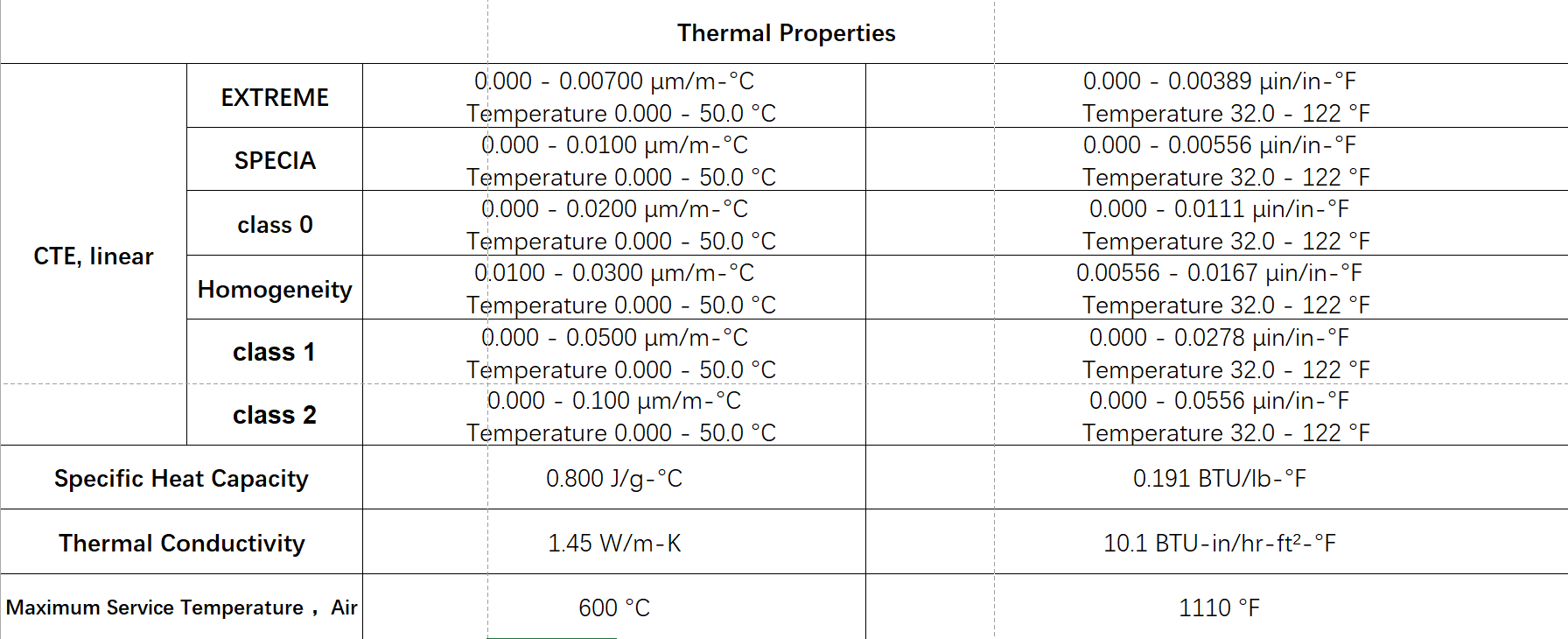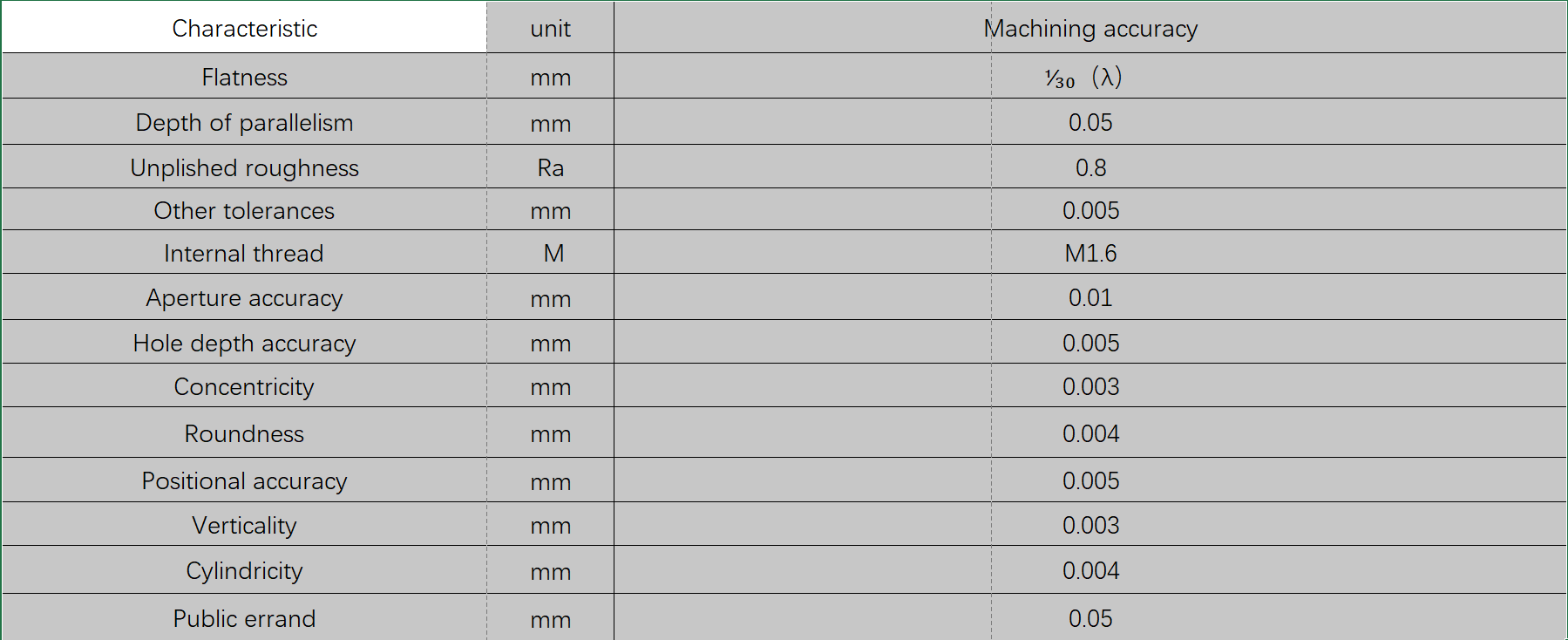zerodur datasheet
Zerodur microcrystalline glass is a low thermal expansion glass ceramic developed and produced by Schott GmbH in Germany. It has extremely excellent optical properties and is widely used in the field of optics, such as mirror substrates for astronomical telescopes, as well as applications in inertial measurement such as circular laser gyroscopes for aircraft or submarines. This is also related to its excellent data. Let's take a look at its data parameters below.
Physical and mechanical parameters
Density: The density of Zerodur microcrystalline glass is 2.53 grams per cubic centimeter, while the British standard is 0.0914 pounds per cubic inch.
Knoop hardness: Knoop hardness is an indicator of the hardness of a material, and the Knoop hardness of Zerodur microcrystalline glass is 620 kg/mm ².
Poisson's ratio: Poisson's ratio refers to the ratio of transverse normal strain to axial normal strain of a material when subjected to unidirectional tension or compression, usually also known as the transverse deformation coefficient. It is an elastic constant that reflects the transverse deformation of the material, and its value is usually between 0-0.5. The Poisson's ratio of Zerodur microcrystalline glass is 0.24.

Thermal performance
Specific heat capacity: Specific heat capacity reflects the amount of heat absorbed or released by a unit mass of material during temperature changes. Depending on the material, the specific heat capacity may also vary. The specific heat capacity of Zerodur microcrystalline glass is 0.800 J/g - ° C.
Thermal expansion coefficient: The size change of materials at extreme temperatures is called thermal expansion, and Zerodur microcrystalline glass is known for its nearly zero thermal expansion. We divide it into six types, and here we choose two of them as examples. The first one is Homogeneity, which has a thermal expansion coefficient of 0.0100-0.0300 µ m/m - ° C from 0 to 50 ° C. The second one is SPECIA, which has a thermal expansion coefficient of 0.000-0.0100 µ m/m - ° C from 0 to 50 ° C. The thermal expansion coefficients of different types are also different.
Thermal conductivity: Thermal conductivity reflects the performance of materials in heat conduction and is an important indicator for applications that require high thermal stability and low thermal expansion coefficient. The thermal conductivity of Zerodur microcrystalline glass is 1.45 W/m-K.
Maximum operating temperature: The maximum operating temperature of Zerodur microcrystalline glass is 600 ° C, which is 1110 ° F in Fahrenheit

Here is our machining accuracy for reference.

summary
There are many applications for Zerodur microcrystalline glass ceramics, such as lightweight honeycomb satellite mirror frames, large astronomical telescope mirror substrates, X-ray telescope substrates, etc. Jundro Ceramics offers customized Zerodur microcrystalline glass ceramics in multiple sizes, shapes, and a range of surface smoothness to perfectly match your equipment and specific needs.
Dongguan Jundro ceramics Technology Co.,Ltd
E-mail:info@jundro.com
Tel:+86-769-82913501
Fax:+86-769-82913801
Add: Room 306, Gate B, Unit 1, Block 2 South, No. 1 Yile Road, Songshan Lake, Dongguan City, Guangdong Province, China(523808)
© August Dongguan Jundro ceramics Technology Co.,Ltd- 2023